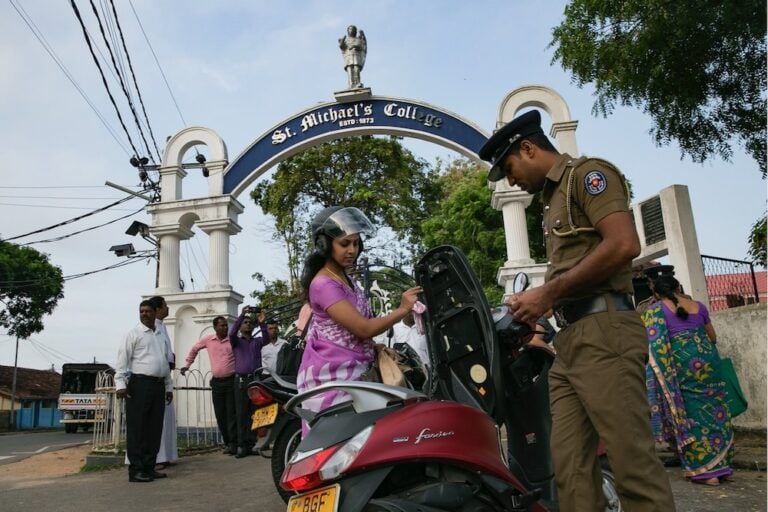(FMM/IFEX) – The following is an FMM press release: Four journalists issued notice by the Supreme Court to show cause against alleged contempt of Bribery Commission In the last few weeks, four journalists of The Sunday Leader newspaper have been issued notices by the Supreme Court to show cause as to why they should not […]
(FMM/IFEX) – The following is an FMM press release:
Four journalists issued notice by the Supreme Court to show cause against alleged contempt of Bribery Commission
In the last few weeks, four journalists of The Sunday Leader newspaper have been issued notices by the Supreme Court to show cause as to why they should not be tried for contempt of the Commission to Investigate Allegations of Bribery and Corruption. Under the law for the time being in force (section 20 of Act No. 19 of 1994), any disrespect or offence of contempt committed against the Commission is liable to be tried and punished by the Supreme Court, as if it were a contempt committed against the Supreme Court.
Altogether, five notices have been issued to senior Sunday Leader journalists within the course of a few weeks. Sunday Leader editor Lasantha Wickramatunga is a respondent in all five cases, while investigative journalists Fredrica Jansz and Amantha Perera have received notices with respect to two cases. The political columnist Suranimala has one case against him. All these cases relate to articles published in 2001 and 2002.
The processing of contempt allegations against the Commission commences when the Commission determines that an act of contempt or disrespect against its authority has been committed, and submits a certificate to that effect to the Supreme Court. With respect to the published articles in question, the Commission communicated its determination of alleged contempt to the Supreme Court in December 2002. It is of serious concern that this matter has been taken up in September 2004, almost two years after the process was commenced.
The law relating to contempt of court in Sri Lanka does not, in many respects, comply with international freedom of expression standards and there is concern as to whether it could be used to suppress media freedom and freedom of expression in the country.
FMM recalls that a Select Committee of the last Parliament, chaired by Hon. Lakshman Kadirgamar PC, MP, the current Minister of Foreign Affairs, was established to consider and to report on the codification of the law relating to contempt, and thereby to bring this aspect of the Sri Lankan law in line with international best practices and standards of constitutional democracy. At present, by virtue of Article 105 (3) of the Constitution, the power to punish for contempt is deemed an inherent power of the courts. By contrast, in democracies such as Britain and India, the scope and nature of contempt of court powers are governed by legislation.
It is the duty of the media to play the role of watchdog vis-à-vis the State, of which the judiciary is an organ, as well as the independent institutions established under the Constitution, such as the Commission on Bribery and Corruption. Using the law of contempt to undermine the investigative role of media will only serve to encourage bribery and corruption in society.
We also find the fact that all of the five notices have been issued after The Sunday Leader published a series of critical articles on the Chief Justice of the Supreme Court of significant note, and believe that this does not auger well for the independence of the judiciary.
It is in this context that FMM deplores the use of the contempt law to haul journalists before the courts and the attempt thereby to hamper their professional performance in investigative journalism. FMM urges the government and the judiciary not to use contempt powers to shackle investigative journalism and media freedom in Sri Lanka.
Sunanda Deshapriya
Spokesperson, Free Media Movement


